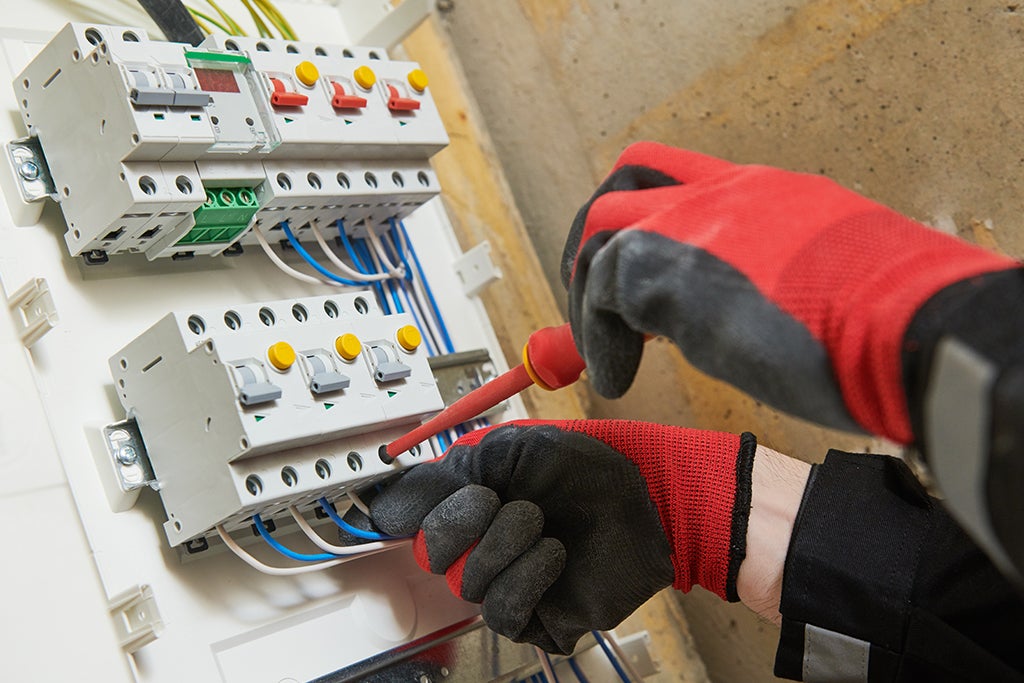UNDERSTANDING THE DIFFERENCE BETWEEN ISOLATORS, RCCBS, AND MCBS: A COMPREHENSIVE GUIDE
Isolators, RCCBs, and MCBs are very frequently used when working with electrical circuits and appliances. While they have very similar purposes, they do have subtle differences that distinguish one from the other. As someone who deals with electrical components regularly, it is important to know these differences. So, here are the main differences between the MCB, the RCCB, and the Isolator.
Different Characteristics of Isolator and Circuit Breaker
| Isolator | Circuit Breaker |
|
An isolator is a mechanical switch that is used to disconnect a part of an electrical circuit from the rest of the system. |
A circuit breaker is an automatic switch that is designed to protect the electrical system from overloads, short circuits, and ground faults. |
|
Isolators are used to isolate a part of an electrical circuit for maintenance, repair, or safety purposes. |
Circuit breakers are used to interrupt the flow of electricity in the event of a fault or overload. |
|
Isolators are typically used in low-voltage applications, such as in homes, buildings, and industrial facilities. |
Circuit breakers are used in both low-voltage and high-voltage applications, such as in power plants, substations, and transmission lines. |
|
Isolators do not provide any protection against overloads or short circuits. |
Circuit breakers protect against overloads, short circuits, and ground faults. |
|
Isolators are manually operated and require a person to physically disconnect and reconnect the circuit. |
Circuit breakers are automatic and can be reset once the fault has been cleared. |
|
Isolators are typically less expensive than circuit breakers. |
Circuit breakers are more expensive than isolators due to their additional protective features. |
|
Isolators do not require regular maintenance or testing. |
Circuit breakers require regular maintenance and testing to ensure proper operation. |
Isolators and circuit breakers serve different purposes in an electrical system. Isolators are used to isolate a part of an electrical circuit for maintenance, repair, or safety purposes, while circuit breakers are used to protect the electrical system from overloads, short circuits, and ground faults.
Read More:- BENEFITS OF INSTALLING MCBS AT HOMES
Difference between MCB and RCCB
MCBs (Miniature Circuit Breakers) and RCCBs (Residual Current Circuit Breakers) are both types of circuit breakers used in electrical systems, but they have different functions. Here's a comparison table highlighting the key differences between MCBs and RCCBs:
| MCB | RCCB |
|
A miniature circuit breaker is a device designed to protect an electrical circuit from overloads and short circuits. |
A residual current circuit breaker is a device designed to protect against electric shock caused by earth leakage currents. |
|
MCBs protect against overloads and short circuits by automatically cutting off the flow of electricity in the event of a fault. |
RCCBs detect any imbalance between the live and neutral currents in a circuit, which can be caused by a fault or by someone coming into contact with an electrical appliance or wire, and tripping the circuit. |
|
MCBs are available in a range of current ratings and are typically used to protect individual circuits in a building. |
RCCBs are also available in a range of current ratings and are typically used to protect multiple circuits or an entire building. |
|
MCBs do not protect against earth leakage currents. |
RCCBs are specifically designed to detect and protect against earth leakage currents. |
|
MCBs are generally faster acting and can trip in as little as 0.1 seconds. |
RCCBs can take longer to trip, typically taking up to 0.3 seconds. |
|
MCBs can be used in conjunction with other protective devices, such as surge protectors and voltage stabilizers. |
RCCBs are not designed to be used in conjunction with other protective devices. |
|
MCBs are less expensive than RCCBs. |
RCCBs are more expensive than MCBs due to their additional protective features. |
MCBs and RCCBs serve different purposes in an electrical system. MCBs are used to protect against overloads and short circuits, while RCCBs are used to protect against electric shock caused by earth leakage currents.
Read More:- 5 DIFFERENCES BETWEEN MCB AND MCCB
Conclusion
The above are the notable differences between isolators and circuit breakers, as well as RCCBs and MCBs. For attractive offers on Isolators, MCBs, RCCBs, or any other electrical components, you can visit the Schneider Electric online store. Schneider Electric provides all your electrical wants and requirements in one convenient place.


Comments